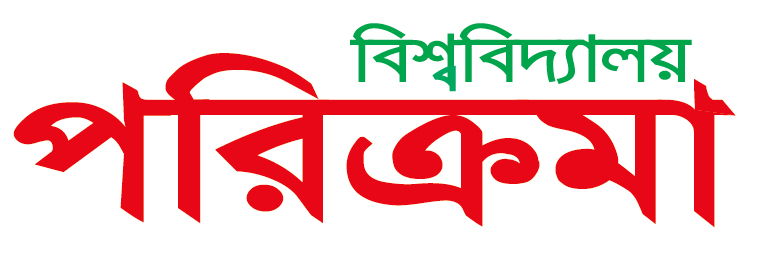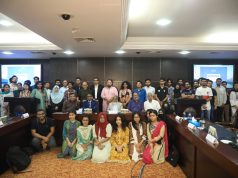

Porikroma desk : The Department of Law, North South University organized a webinar titled ‘Antinomies and Aporias in Official Human Rights Solidarity Argumentation Across the Global South/North Axis: Recovering the Power/Interest – Norms/Values Nexus’ on 10 December 2022, the Universal Human Rights Day. The webinar’s guest speaker was Professor Obiora C. Okafor, Edward B. Burling Chair in International Law and Institutions, Faculty Co-Lead-States, Markets and Institutions Functional Area School of Advanced International Studies, Johns Hopkins University; UN Independent Expert on Human Rights and International Solidarity. Professor Md. Rizwanul Islam, Chair, Department of Law, North South University, gave the introductory remarks and moderated the webinar.
The speaker initiated the webinar by discussing his working paper on international human rights solidarity. According to him, the paper teases out and reflects on particular antinomies and aporias that tend to characterize the international human rights solidarity arguments that global north and global south countries tend to make. It focuses on the arguments made by countries on the appropriateness or otherwise of imposing an international legal obligation on states to express solidarity with victims of human rights violations around the world. It is important because if a legally binding obligation is removed and substituted with charity, the same arguments cannot be made.
The speaker believes that these antinomies and aporias are not just harmless paradoxes that exist. They shape our ideas, our values, our notions and our senses of who the Global actors are, who are obeying international law, who are anti-international law and so on. The paper also looks into the international human rights solidarity arguments if the states are pursuing the promotion of value or expansion and consolidation of power or both. If both, to what extent, relative to each other, are they pursuing each?
Then the speaker moved forward to discuss that the so-called responsibility to protect (R2P) as a hard law obligation, as stated in official R2P documents, does not extend to the alleviation of poverty or protection of economic or social rights. He wondered why the global north states do not accept that R2P should extend access to people of the global south to Covid-19 vaccines and therapeutics. Global North countries tend to strongly oppose legally binding R2P international solidarity obligations in such economic and social rights issues, while the Global South tends to support it. On the other hand, the same Global South states tend to oppose binding obligations or authority in favour of other States to intervene in cases of egregious violations of civil and political rights subject to some exceptions.
Professor Okafor believes that these general tendencies cannot be adequately explained by referring to the immanent power of the human rights values involved. It is not as simple as some states pursuing human rights values or not pursuing human rights values. So, he suggests that there is much more involved than what is usually acknowledged such as power and interests. Otherwise, states would have similar attitudes to all human rights all the time.
According to Professor Okafor, these logical contradictions shown by the global north and global south regarding civil & political rights and economic & social rights are irresolvable in the foreseeable future because of the deep, strong socio-economic and power relation calculus that drives these contradictions.
The speaker concluded the speech by discussing how countries with similar situations in terms of socioeconomic, political power, development times and similar history tend to make similar kinds of official arguments regarding international human rights solidarity. It again suggests that much more than the power of norms and values are at play. Interests, power and freedom of states to do whatever advances their interest is as important as the push to promote and protect human rights globally. However, the argument that the speaker wants to present is not that power explains everything but that we need to recover the role that power plays in international human rights solidarity argumentation.
This was the 40th webinar of the international webinar series of the Department of Law, North South University, which was launched in January 2021. Eminent Professors from across the world have graced the webinar series by delivering their lectures.




